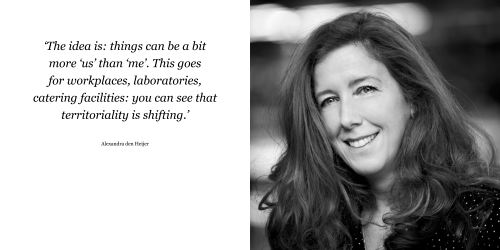by Alexandra den Heijer
Last week I gave four lectures – in Breda (NHTV), Amsterdam (AMC) and Liverpool (AUDE) – in which I presented my “solid, liquid & gas” metaphor for both the university and the campus. I started to refer to these physical states during our Campus NL research, in 2016. In a recent interview, published in “Portraits of Science” early January, I explain more about this metaphor, see online link and photo below for PDF publication.


Pages above from TU Delft’s 2018 “Portraits of Science” – published at TU Delft’s 176th Dies Natalis in January 2018 – see PDF or link to intro for short or long interview.
Hand-outs of presentations in Breda and Liverpool can be found under DOWNLOADS. An earlier post about the Solid-Liquid-Gas metaphor can be found by clicking this link or even a 2013 post called “No clicks without bricks”. Our Campus Research Team will publish practical guidelines to translate the metaphor to a campus brief in 2018. To be continued!










